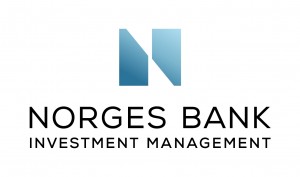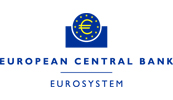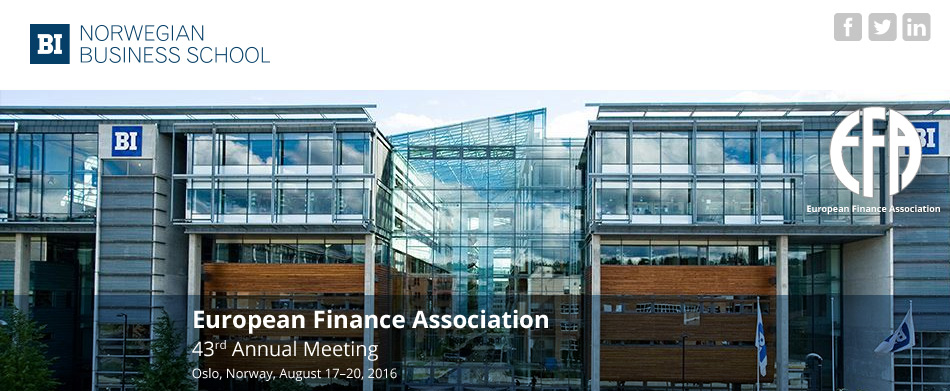The EFA 2016 Annual Meeting offers three special sessions held in collaboration with Norges Bank Investment Management (NBIM) and one session in collaboration with the Bank for International Settlements and one session with the European Central Bank. Papers for the special sessions will undergo the same submission and review process as regular paper submissions. Submitting to special sessions means that you are submitting to the main conference.
Norges Bank Investment Management

Market structure evolution
Norges Bank Investment Management (NBIM) encourages the submission of papers on the topic “Technology and market innovation and market participant evolution”. We welcome papers addressing the following questions:
-
Technology and Market Innovation
- What are appropriate models for market structure when ‘being faster’ is no longer a feasible competitive strategy (e.g. FX, equity)?
- Alternative models of price discovery: What are the merits of batch auctions vs continuous trading? How does introducing artificial latency impact execution quality?
- What is the role of the regulator in this market structure? What will be the impact of MiFID II?
-
Market Participant Evolution
- What is the role of active management when there is less competition for capital?
- What is the impact of ETF and mutual fund growth on liquidity risk transformation?
Corporate governance
Norges Bank Investment Management (NBIM) encourages the submission of papers on the topic “Controlled listed companies: Fate or fortune for minority shareholders. De facto control is practiced across markets and takes many forms. The implications for minority shareholders are not fully understood”. We welcome papers addressing the following questions:
- What are the determinants of mutually beneficial controlling ownership, i.e. ownership that adds value to the company and does not extract special benefits for the controlling owner?
- What is the optimal related party transactions regime, i.e. one that bars against extraction but foregoes minimal accretive value?
- How should corporate governance differ between companies with or without actual control? Can regulators and other standard setters impact expected returns by differentiating governance between controlled and un-controlled companies, and can controlled companies achieve a lower cost of capital by self-imposing measures not required by regulations?
- Are the many elements of control and their interplay well enough understood? Is there a need for a more comprehensive typology of control?
Asset pricing
Norges Bank Investment Management (NBIM) encourages the submission of papers on the topic “Understanding the underlying drivers of asset prices”. We welcome papers addressing the following questions:
- How do foreign exchange rates affect international bond and equity prices?
- How do macroeconomics relate to tradable risk factors?
- What is the effect of market segmentation on asset prices?
Bank for International Settlements

The Bank for International Settlements (BIS) encourages the submission of papers on the topic: “Financing the real economy”. We welcome papers addressing the following questions:
- How is the real economy financed?
- What is the link between finance, factor allocation, and total factor productivity?
- Is there a shift from banks to markets?
- What are the factors influencing the choice of debt vs equity?
- Is the bond market a good source of financing for medium-sized enterprises?
European Central Bank

The European Central Bank (ECB) encourages submissions of papers related to one or several of the following topics:
1. Unconventional monetary policy
- Impact on financial markets
- Risks to financial stability
- Optimal exit design, communication, and how it affects financial markets
2. Macro-prudential regulation
- Interaction with monetary policy and relationship between financial and business cycles
- Optimal design and effectiveness of different measures
- Impact on non-bank activities and on their leverage
